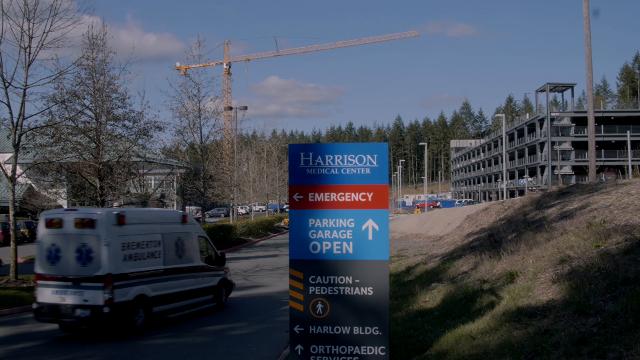I am the daughter of an immigrant. And I was raised by a survivor of early parental loss.
The defining moment of my father’s life took place when he was 5 years old. His father, my grandfather, left home to fight the Anglo-Iraqi War in May 1941. Not wanting him to leave, my father chased his horse over and over again. My grandfather repeatedly scooped him up onto his horse and returned him to his mother’s arms. My father remembers being held back as he screamed, pleaded, cried and begged his father not to go off to war.
They never saw each another again. My grandfather was killed in battle three days later, a casualty in the bid for Iraqi independence. Growing up, I saw my father cry about only three things: the loss of his father, and the deaths of two of his own children many years later. For him, losing a parent at such a critical age colored his perspective of the world for the remainder of his life.
Today, more than 2,000 children are in the custody of the U.S government and separated from their families. The political reasons for this situation — whether a result of a “zero tolerance” policy, parental death or having traveled with a smuggler — make no difference to me. Regulations, court opinions, and other outside forces govern resolution of this immigration quagmire. However, ensuring the safety and protection of the mental and physical well-being of migrant children matters above all else.
The Center for Human Rights and Constitutional Law is an organization recruiting pediatric experts, attorneys, and interpreters to provide support, reassurance, and much-needed continuity to migrant children. I applied to be part of the Flores Team without hesitation, as did 5,300 of my fellow pediatric colleagues, to provide on-site support to interview and examine detained children in order to facilitate family reunification. What began as an effort to recruit 20 pediatricians resulted in more applicants than there are child detainees.
Until reunification can be achieved the Department of Health and Human Services should be held accountable for fostering resiliency in migrant children facing overwhelming adversity. Children should be housed with their siblings, cousins, or friends and allowed to communicate with family members frequently to mitigate long-term damage to them. They should have access to healthcare and educational resources.
After my grandfather died, he left a Turkish widow who was illiterate, unable to speak Arabic and had little capacity to support her six young children. The poverty my father and his siblings endured throughout their childhood left an indelible mark. Just one protective adult — who reminds a child of their value to the world – can change the future for a child. He told me countless times that if one family member had stepped forward, the assistance would have made a world of difference.
The circumstances facing migrant children today are similar to those of my father and his siblings nearly 80 years ago. We cannot control whether or not children come across the border with or without their parents, but we can prioritize humanity and compassion above all else. For me, this debate is no longer about legal or illegal immigration — it is a test of our capacity to cherish the most defenseless human beings among us, our children. It is a trial of our proclivity to stand up for those who cannot do so for themselves.
If my father were still alive today, he would fight for the timely reunification of families separated at the border, and so should we all.
Dr. Niran Al-Agba is a pediatrician in Silverdale, works on healthcare policy at national level as part of the National Physicians Council and is a regular opinion columnist for the Kitsap Sun.
More: Saad K. Al-Agba, 81



































